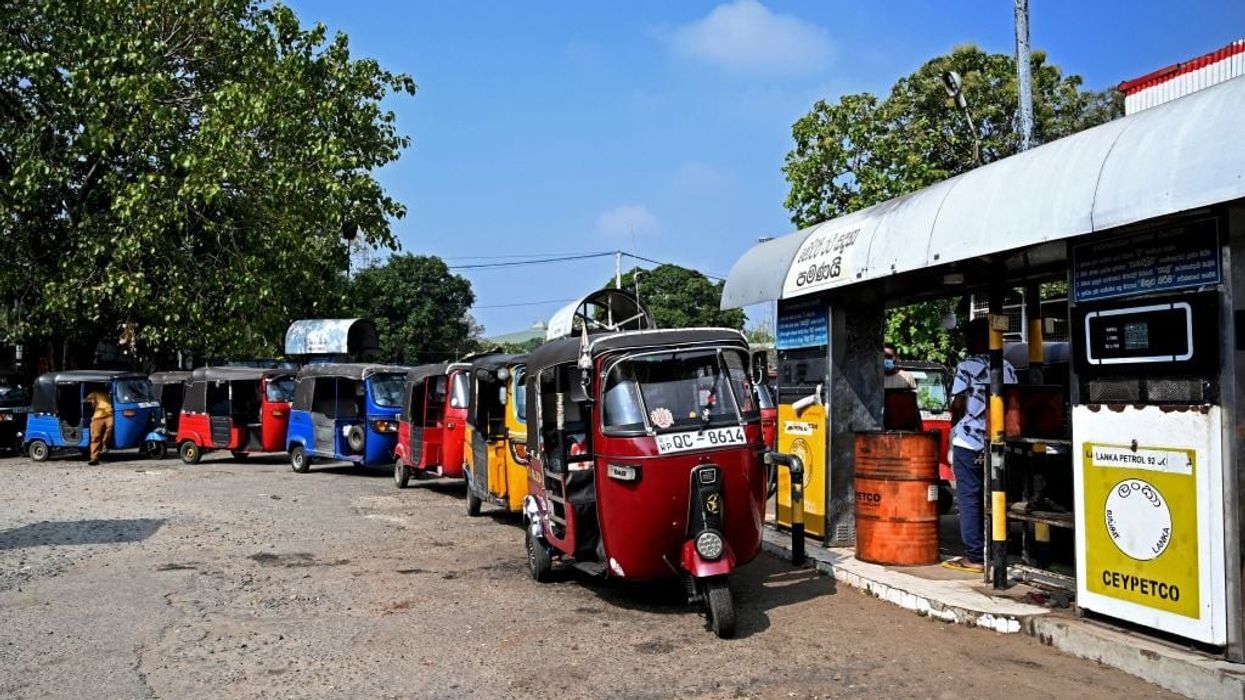SRI LANKA's largest private fuel retailer raised diesel prices by more than 50 per cent on Friday (11), sparking a wave of sharp increases in food, medicine and transport costs to add to consumers' woes.
The south Asian nation of 22 million is facing its worst financial crisis since independence from Britain in 1948.
Residents had already been reeling from weeks of shortages that crippled public transport and caused long queues for petrol, food and medicine.
Authorities this week gave up trying to defend the official exchange rate for the Sri Lankan rupee, devaluing it by 15 per cent and letting it move freely.
It has fallen by more than a quarter since Monday (7) to match the black-market rate of 260 to the US dollar - driving up costs for importers.
As fuel prices went up on Friday (11), bakery owners announced bread prices were rising by 42 per cent, while the government allowed pharmacies to raise medicine prices across the board by 29 per cent.
State pharmaceuticals minister Channa Jayasumana said he expected shortages in essential medicines would ease after the authorisation of the increase.
Pharmacies were "hoarding medicines expecting a price rise", he told parliament. "In the next few days, the supply situation should improve."
The civil aviation authority said airline tickets from Colombo will cost 27 per cent more with immediate effect.
The pandemic torpedoed Sri Lanka's vital tourism sector, after which the government imposed a wide-ranging import ban as it tried to stop the outflow of dollars in order to pay off debt.
Friday's fuel hike is the third in two months by Lanka IOC, the local unit of India's Indian Oil Corporation.
Lanka IOC raised the more commonly used auto diesel to Rs 214 (64p) a litre, up from Rs 139 (42p), while higher grade diesel was raised to Rs 252 (76p) a litre from 177 Rs (53p).
Official figures show that diesel prices have risen 78.2 per cent since February 6, while petrol is up 43.5 per cent.
There was no immediate energy price revision by the state-run Ceylon Petroleum Corporation (CPC), but most of its pumps have been out of fuel. The few that were open saw long queues on Friday.
Overall inflation hit a record 16.8 per cent in January with food prices up 25 per cent.
Supermarkets are rationing staple foods including rice, sugar and milk powder.
Sri Lanka's foreign currency reserves had fallen to $2 billion (£1.53 bn) by the end of February while it has to repay $7 bn (£5.37 bn) this year to service its external debt of $51 bn (£39.09 bn).
International rating agencies have downgraded the country on fears that it may not be able to repay its debts, but Colombo insists it will somehow honour its obligations.
(AFP)
Prices spike as local currency plummets in Sri Lanka




